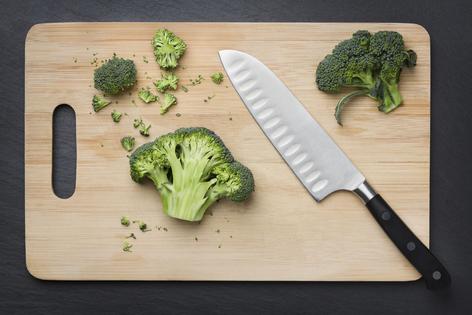Environmental Nutrition: Waste not
Most people assume landfills are stuffed mostly with plastic packaging, spent furniture and garage sale leftovers, but what is really causing them to burst at the seams are items that could have made up a nutritious salad.
Every day a staggering amount of food is wasted in America at the farm, retail and consumer level. "We are squandering about 40 percent of the available calories in the food supply, which translates into more than a billion pounds of edible food going in the trash each year," says Jonathan Bloom, a food waste expert and author of "American Wasteland."
Ethical, environmental and economic repercussions
Up to 15 percent of households in America suffer from food insecurity, so food waste is a lost opportunity to help solve this problem, according to Bloom. "Decomposing food that makes its way into landfills releases methane, which is a significant climate warming gas," says Dana Gunders, National Resource Defense Council scientist and author of "Waste-Free Kitchen Handbook." Tossing away food means trashing all the resources, such as water and transportation, that went into producing it and getting it to stores. In the end, food waste represents a loss of about $240 billion to the American economy, according to Bloom.
Why do we waste food? Bloom blames the sheer volume of food produced in America, which offers a sense of abundance, along with our desire to have food look perfect and homogenous (picture a pile of blemish-free, look-a-like apples at the grocer), and the relative low percentage of income most Americans spend on food compared to many other nations. While food waste is a problem throughout the food chain, more gets disposed of in households than in other sectors, like grocery stores and restaurants.
Cut your food waste
Follow these tips to reduce taxing your food budget and Mother Nature.
Be a savvy shopper. Plan meals, make a shopping list, and stick with it. "Show restraint when grocery shopping by avoiding impulse buys," says Gunders. She advises not being too ambitious with your meal planning. "As a workweek gets busy the chances of preparing elaborate meals decreases, which encourages food waste when what you bought for a recipe doesn't get used."
Embrace ugly ducklings. Shop at a farmers' market; support farmers' efforts to unload oblong fruits and knobby vegetables that many grocers won't accept but are just as tasty and nutritious as their "pretty" counterparts.
...continued







